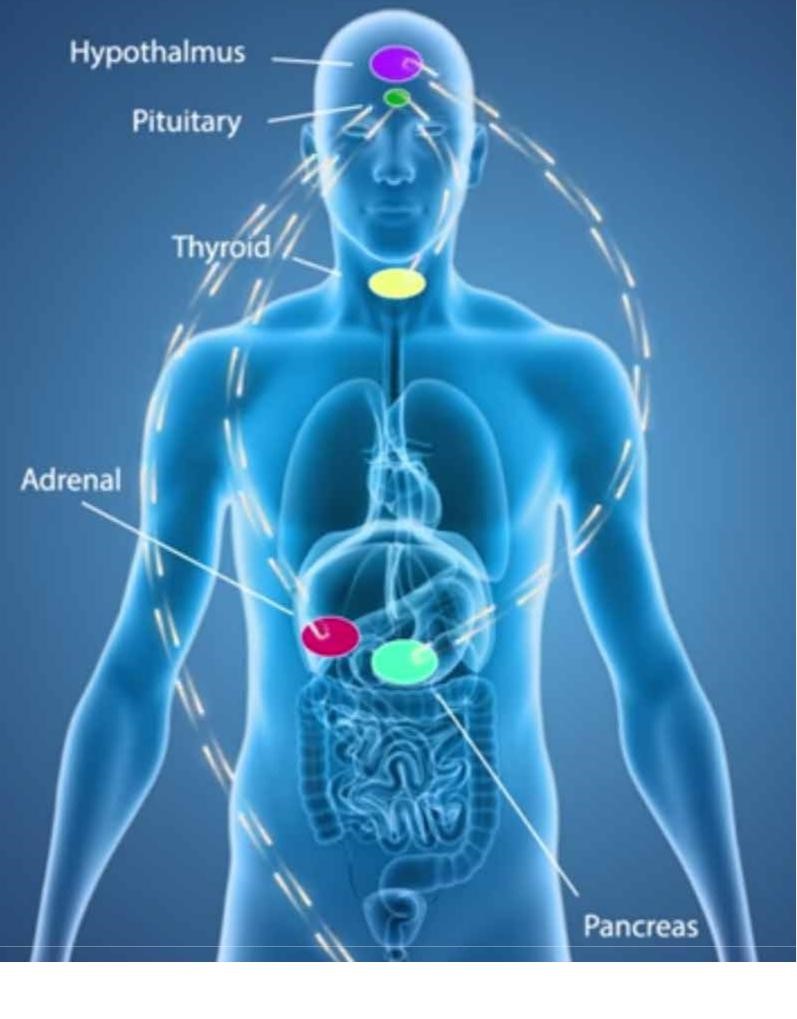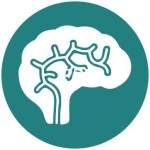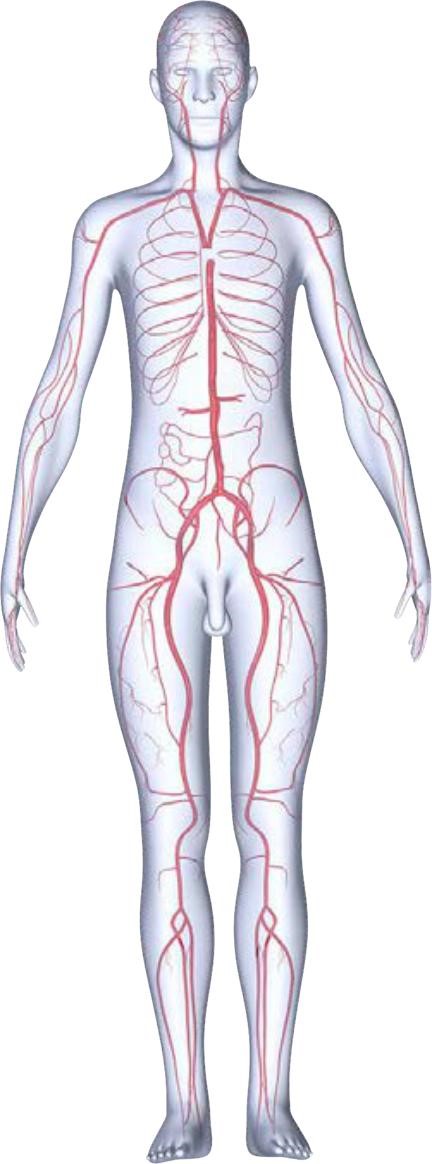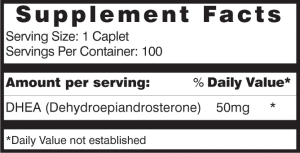Here’s What You Should Know on How Testosterone Replacement Therapy Works
 If you’ve been reading Hormone Therapeutics blogs and testosterone replacement therapy eBooks, you’re probably already completely aware of just how important testosterone is to male health. It boosts mental energy, physical energy, alertness, strength, sexual vitality, and just generally helps us live our lives better.
If you’ve been reading Hormone Therapeutics blogs and testosterone replacement therapy eBooks, you’re probably already completely aware of just how important testosterone is to male health. It boosts mental energy, physical energy, alertness, strength, sexual vitality, and just generally helps us live our lives better.
You might be wondering just how exactly it provides all these benefits, though. What’s the actual mechanism? What, precisely, does testosterone do?
The fact is, testosterone does all sorts of beneficial things in just about every part of the body. It’s a key hormone to maintaining our body systems, especially in men. Women actually also have small amounts of testosterone, but their bodies rely more on estrogen.
The importance of living with a fully functioning endocrine system has only really mattered this much in the past century as people are living longer due to improved medicine, sanitation and many other factors. 100 years ago the average life span was 48 and today it is 78 years. Many areas of the body do not hold up over time as well as others and require assistance like eye glasses, hearing aids or Lipitor. The same is true with balancing and optimizing the endocrine system through testosterone replacement therapy.
We now understand that a properly balanced endocrine system leads not just to the vanity aspects of it’s benefits but a healthier, happier, more effective and longer life.
Testosterone Replacement Therapy – How It Works
So to satisfy your scientific curiosity, here’s a high-level rundown of what testosterone does in men, across each main part of the body.
 The Endocrine System
The Endocrine System
The endocrine system is where our bodies produce hormones. It’s a series of glands distributed around various parts of the body that, as a whole, keep our hormone levels at their proper levels.
Testosterone is a hormone, so it’s also produced by the endocrine system. The process starts in the brain at the hypothalamus. The hypothalamus tells the pituitary gland what the body’s overall level of testosterone should be. The pituitary gland then directs the testicles and, to a lesser extent, the adrenal glands to actually produce the stuff. This is called the HPA axis.
This is where Testosterone levels can be thrown off. Typically, hypogonadism is to blame for low testosterone levels, and can cause a multitude of health problems. Although it’s normal for testosterone production to peak at 19 and drop gradually over time, about 1% per year after age 30, for some people it can fall too fast. In those cases, testosterone replacement therapy is indicated.
 The Reproductive System
The Reproductive System
Testosterone production starts in male children surprisingly soon after conception. A seven-week old fetus has already developed enough to begin producing the hormone, as well as sperm.
If testosterone levels are too low later in life, a man can suffer from erectile dysfunction, low sperm count, and even prostate problems. Its bad news, and it’s why testosterone replacement therapy is so important under the right circumstances for men in need of hormone balancing and testosterone supplementation.
 Puberty
Puberty
Testosterone is responsible for male puberty, as well. It’s the reason we start growing hair in new places, our voice (and other things) drop, and our muscles start to develop.
When boys start to notice girls, that’s the work of testosterone, and it carries through later in life. Low testosterone levels can impact our libido, and it’s actually a two-way street. Periods of minimal sexual activity can actually cause testosterone levels to drop in response, which can cause erectile dysfunction and lowered libido. It’s a snake that eats itself, and it’s best avoided.
 The Central Nervous System
The Central Nervous System
The central nervous system is how our body communicates with itself. It’s a network that lets glands and organs communicate to trigger production of hormones, among other things. Hormones, including testosterone, have all kinds of effects on the body and mind. Testosterone drives our competitiveness and self-esteem.
That means lowered testosterone levels can make us lose our motivation and spark. It can literally make us sad. Like sexual desire, it’s a two-way street. Engaging in competitive activities like sports can spike our testosterone, which in turn makes us more motivated to strive for success. Lowered testosterone can make us lose our motivation, and sitting around can further lower the testosterone levels.
 Skin and Hair
Skin and Hair
It starts at puberty. Hair starts growing in new and disturbing places. Pretty soon, we’ve got manly, hairy chests and armpits, as well as hair on points further south.
Testosterone is responsible for that, and lowered testosterone levels can have the opposite effect. Our body hair might actually start to fall out if testosterone gets too low!
The other thing about puberty, acne, is also an effect of testosterone. For that reason, you might need to stock up on some acne cream or gel when you’re undergoing testosterone replacement therapy. It’s a small price to pay for the benefits you’ll receive.
 Muscles, Fat, and the Skeleton
Muscles, Fat, and the Skeleton
Testosterone is a major factor in the development of our muscles, both size and strength. Testosterone levels work to improve our muscles in a few different ways.
- It stimulates neurotransmitter production, which in turn tell our muscles to grow.
- It tells the nuclear receptors in our DNA to synthesize protection.
- It increases growth hormone levels
What that means overall is that testosterone makes strength training more effective. If you’re been hitting the weights and not seeing much gain, low testosterone levels might be to blame. The male hormone is also important to our skeleton. It increases bone density, and it’s what makes our bone marrow manufacture red blood cells. If you have low testosterone production, you might actually become more brittle and prone to fractures.
Finally, testosterone is important to burning fat, and low levels can be responsible for a higher body fat percentage.
Overall, testosterone levels are vital to your physical health.
 The Circulatory System
The Circulatory System
Finally, testosterone is crucial to the health of our blood. As mentioned, it improves our red blood cell count, which is a positive because it carries more oxygen throughout our body. However, a physician needs to monitor and manage red blood cell and hematocrit levels to ensure blood does not get too viscous.
Some studies have shown that testosterone replacement therapy can also make our hearts healthier. These studies suggest that the hormone is effective in reducing cholesterol and blood pressure. It can even help destroy harmful clots.
Although testosterone replacement therapy shouldn’t be undergone lightly and without the advice of a medical professional, its benefits are becoming more and more apparent. If any of the symptoms and problems mentioned in this article ring a bell for you, get in touch with a doctor today.
Hormone Therapeutics aims to help people looking to improve and optimize their health through natural means or through the guidance of our physicians.
Don’t miss out our free weekly tips and news on Low T, hormone balancing, healthy living, nutrition and a lot more.
Want more?

Sign up today and Get our ebook, ‘Naturally Increase Your Testosterone Levels’ absolutely FREE.
Here’s What You Should Know on How Testosterone Replacement Therapy Works
Saleamp Design October 18th, 2016
Posted In: Testosterone Therapy
Tags: adrenal, Andropause, cognitive, endocrine system, energy, fatigue, gonads, growth hormone, hair, HPA axis, hypogonadism, hypothalamus, libido, mental, muscles, pituitary, puberty, reproductive system, sex, skin, sperm, strength, testes, testosterone, testosterone levels, testosterone production, Testosterone replacement therapy, vitality
Testosterone Levels’ Link to General Health in Men
 A study has shown that serum testosterone concentration in men may have links to fitness and health levels that can serve as an indicator of general health. These studies are exploring how testosterone content may affect all-cause mortality in older men and what it may mean for men as they age.
A study has shown that serum testosterone concentration in men may have links to fitness and health levels that can serve as an indicator of general health. These studies are exploring how testosterone content may affect all-cause mortality in older men and what it may mean for men as they age.
Testosterone Concentration in Men
Testosterone (T) is a hormone produced by males in the testicles after a communication pathway called the HPA axis from the hypothalamus to the pituitary gland through the adrenals and to the gonads. While it is also present by women, it is produced in much higher concentrations in men. It is responsible for maintaining energy, bone density, muscles mass, sperm production and sex drive, along with other traits, and is associated with maintaining many of the characteristics associated with men.
The level of T concentration in men peaks and declines at given points in their lifetime. In general, serum T concentration is highest in adolescence and young adulthood, when it is at its peak. However, as men age, its levels commonly undergo a steady decline. Men peak at age and experience a range of one to two percent decline in their concentration.
Testosterone levels and their links to health
Scientists have been exploring possible links of testosterone as an indicator of men’s health conditions, studying the correlation of low T with general health and mortality.
One study has discovered that while a decline in men’s T levels of one to two percent is considered normal, a sudden and immediate drop in testosterone concentration may be associated with an increased probability of mortality. Based on observations, a low level of serum testosterone concentration in men is seen as associated with risk factors such as diabetes and cardiovascular problems. However, while these conditions may be associated with illnesses and premature death, the FDA is not saying they see a direct causational effect between decreasing testosterone and longevity.
Scientific Testosterone Studies
Currently, available studies tackling the topic have produced mixed results. In one study researching a sample of 794 men, it was concluded that men whose testosterone levels were in the lowest quartile of test subjects were at a 40% greater risk of mortality in comparison to those men who had higher levels. A 15 year study of US military veterans also showed that men with low T levels, treated under physician guidance and supplemented back to normal levels above 500, had lower incidence of heart attack, stroke, prostate cancer and death.
In an effort to consolidate all the data and results from these previous researches, a newer study examined multiple works from 1966 to 2010 in order to gain a clearer and more definitive understanding of testosterone levels and mortality. In addition to testosterone levels, it also took into account lifestyle factors, age and other characteristics that may affect results.
Low Testosterone and Higher Mortality or Cardiovascular Risk
Ultimately, the research concluded that a decline in total testosterone was linked with cardiovascular mortality by 25% and with higher susceptibility to general, all-cause mortality by 35%.
The study did note that other factors may influence the relative risk that was determined in the study. Among these, researchers noted the age of the population studied, the total testosterone level and the amount of years the patient followed up as possible sources of differences within the study. The study also observed the most susceptible demographics for larger relative risks. These included patients with lower levels of testosterone, older men and patients who followed up for a smaller amount of years.
As a conclusion, the data gathered from this research establishes low T as a possible basis or indicator of general health in men. However, while it may be seen as a marker of higher susceptibility to all-cause mortality, it is not strictly a direct source of it. Overall, there remains much to be learned about the two.
Hormone Therapeutics
Aside from being and indicator of one’s general well-being, testosterone levels and hormone balance are traits that can greatly affect one’s quality of life. As men age, it becomes important to monitor these factors in order to gain a better idea of one’s health and fitness.
Hormone Therapeutics specializes in assisting people with endocrine-related concerns in order to help them monitor and regulate the level of hormones in their bodies. If you have any inquiries regarding your testosterone level and what it means for you, Hormone Therapeutics can help you jumpstart your life and provide you with the answers you need.
Testosterone Levels’ Link to General Health in Men
Saleamp Design April 12th, 2016
Posted In: Testosterone Therapy
Tags: adrenals, bone density, cardiovascular, energy, health, hormone replacement therapy, HPA axis, hypothalamus, low t, low testosterone, mortality, muscles mass, pituitary glands, sex drive, sperm, testosterone, testosterone therapy
DHEA Benefits and Frontiers
 Dehydroepiandrosterone (DHEA) is a naturally occurring hormone produced in the body. Secreted by the adrenal glands, it is precursor to other hormones and is transformed by the body into specific hormones once it reaches the target tissue. As a prohormone, most of it effects are related to its end products as opposed to DHEA itself.
Dehydroepiandrosterone (DHEA) is a naturally occurring hormone produced in the body. Secreted by the adrenal glands, it is precursor to other hormones and is transformed by the body into specific hormones once it reaches the target tissue. As a prohormone, most of it effects are related to its end products as opposed to DHEA itself.
DHEA is gaining traction as an anti-aging supplement. It is also being explored as a treatment for several of the health conditions associated with aging.
DHEA and its effects
DHEA is often touted as a “youth restoring” hormone because of its reputation for slowing down the age process, improving general energy levels and cognitive skills. Because of this, many see it as a solution to regulate the side effects of aging and hormone depletion.
DHEA supplementation has shown an increase in energy, cognitive concentration, greater muscle mass/retention and slowing down the progression of Alzheimer disease. DHEA has been shown to have an influence on erectile dysfunction and lack of sex drive. In addition, Men with low DHEA more often experience depression as well as higher risks for overall mortality, including heart failure and cardiovascular threats.
DHEA Decline with Age
Unfortunately, DHEA production declines as its importance increases. DHEA production reaches its highest point during the 20s, but as one grows older, the body’s DHEA production decreases, leaving as little as 20% of the healthy output by the time one reaches 70.
Since it is a precursor to other hormones, this decline leads to a corresponding effect in other hormones as well. Estrogen and testosterone synthesis, in particular, wane once the DHEA levels decrease. This brings forth several consequences for both sexes. In men, specifically, age-related DHEA decrease leads to a decline in testosterone secretion. This decline is compounded because of the larger role DHEA plays in the production of testosterone as we age.
DHEA Supplements and their Effects
From trials, DHEA supplements have been shown to increase muscle mass, strength and physical well-being in general. In addition, tests of increased concentration, in men and women, have been shown to improve sexual potency and mood, with women experiencing less menopausal symptoms after taking supplements. Overall, DHEA has been seen as an anti-aging supplement, providing bone and muscle strength, better moods and immune system and increased memory.
When tested on patients with diabetes and neurological disorders, DHEA was not seen to improve erectile function and potency in patients. It has also been shown to exhibit minimal side effects such as mild acne, swollen ankles and increased facial hair in some women.
The effect of long term treatment on cardiovascular conditions and hormone-dependent tumors has not yet been studied, or have yielded conclusive results.
DHEA Frontiers
DHEA supplements for anti-aging purposes are currently gaining traction. As a precursory hormone, it is seen by many as a way to regulate hormone balance within the body. In addition, DHEA’s reputation in increased bone and muscle strength, as well as energy, has many physicians exploring DHEA supplements and its effect on bone growth, depression, and other mood and cognitive disorders.
Hormone Therapeutics
Hormone Therapeutics specializes in endocrine and hormone-related treatment, and is committed to finding the best treatment for your well-being. If you’re curious about how DHEA supplements can improve you and your life, Hormone Therapeutics can provide the answers for you. Call us today!
Do You Need Help?
Hormone Therapeutics is the leading national company assisting men who want to get their lives back through Hormone Replacement and Testosterone Replacement therapy. Our local physicians are ready to treat you anywhere in the entire country. Hormone Therapeutics is pioneering an easier, cost efficient and more private way for you to work with our clinical advisors and physicians from the privacy of your home or office after your local physical exam confirms you have one of the symptoms of Low T.
Contact us today and our clinical advisors will work with you on a hormone therapy program that may include prescribed hormones, exercise, nutrition and sleep programs to reclaim your vitality.
DHEA Benefits and Frontiers
Saleamp Design April 1st, 2016
Posted In: Health & Wellness
Tags: brain, brain fog, cardiovascular issues, Cialis, Dehydroepiandrosterone, depression, DHEA, ED, energy, erectile dysfunction, fatigue, hair loss, happiness, heart attack, low t, low testosterone, memory, muscle loss, muscle mass, sadness, sex drive, sexual function, stroke, supplements, testosterone, Viagra


